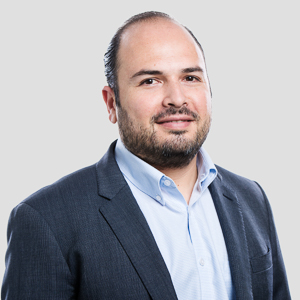“Stability Assessment of Forthcoming Power Networks with Massive Integration of Renewable Energy Source”
Wednesday, Nov. 1 at 3:00pm ET
Via IEEE.org
Register Now
Add to Calendar
| Sponsored by the IEEE Power & Energy Society—UF Chapter & the Cognition and Control in Complex Systems (CCC) Lab |
|
|---|---|
 |
 |
Abstract
The pandemic and the war in Ukraine are situations that jeopardize the implementation of ambitious energy transitions in the short and long term, in Europe, for instance, due to the energy dependence on imports of natural gas, oil and coal. To overcome this major concern, in March 2022, the European Commission defined a new plan to minimize such problems. The panorama in Switzerland is not any different and is anticipated to request transmission system operators (TSOs) to accelerate the integration of renewable sources, which can introduce severe challenges due to the lack of long-term energy storage and the volatility of these resources, particularly during extreme winter seasons. The electrical network in Europe spans thousands of kilometres and it comprises several countries with the particularity of potentially becoming even larger (incorporation of Ukraine and Moldova). Decommissioning of nuclear based electricity and dependence on highly stochastic energy sources made the operation of these systems highly complex as already experienced in serious events in 2021 across Europe. Although a system collapse has not been experienced, the recent events underlined the fragility of the system and evidenced that if no additional measures for the operation of the system are implemented, a future system collapse is around the corner. In this presentation, a brief overview of the current conditions of the European power system are discussed and then some examples of the technical work that the power system group at the Zurich University of Applied Sciences is doing to tackle these problems is provided.
Biography
Dr. Rafael Segundo received the PhD degree in electrical engineering from Imperial College London in the UK in 2012. He joined the Electric Power System group of KTH, Sweden as postdoctoral researcher in 2013 and since 2014, he is a Research Associate at the Zurich University of Applied Sciences in Switzerland. Dr. Segundo is the founder and chair of the IEEE Working Group on Big Data & Analytics for Transmission Systems and chair of the international workshop DynPOWER that has taken place annually since 2017. His research interests include analysis of power systems dynamics and control, effects of integration of renewable sources in the stability of the system, application of machine learning techniques to improve the situational awareness and the development of indexes to measure the security level of transmission systems.

